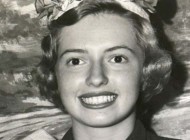NEWPORT, R.I. — Carl Domenic Ritorno of Newport died on August 16 from complications of pneumonia. He was 74 years old.
In the late 1960s, Carl established the John Gidley House on Franklin Street in Newport, an antiques shop with humble beginnings that became a source of important pieces of English, French and Italian furnishings for collectors from across the United States and Europe. He also provided pieces to various historical societies and museums, including the Metropolitan Museum of Art in New York City.
He was born in 1942 in Providence, R.I., the second of two children and the only son of the late Carlo and Florence (Moretti) Ritorno of Cranston, R.I. His mother’s family had settled in Cranston in the late 1800s. His father was born in Italy and came to the United States in 1922.
Carl grew up in Cranston and graduated from Cranston High School East in 1960. He worked at various jobs for a few years until, as a nod to his growing interest in antique furniture, his parents sent him on a trip to Europe. Of all the places he visited, it was London that captured his imagination. The city’s museums and antiques shops were set against the backdrop of a city at a crossroads in time — still, in many ways, recovering from the gritty effects of World War II but also beginning to coalesce around the new energy of the “Swinging Sixties.” London cast a lifelong spell over Carl and he would return there frequently.
A 1966 graduate of Bryant College, Carl received bachelor of science in business administration degree. While in college, he worked in a warehouse for Market Merchandisers, Inc. He also began collecting second-hand furniture and decorative items that caught his eye — buying what he could afford from various shops around Rhode Island and storing and reselling it all from the garage of his family’s home.
In 1968, Carl purchased an Eighteenth Century building on Franklin Street in downtown Newport. Originally a single-family house, like many of its type in Newport the building had been raised up in either the late Nineteenth or early Twentieth Century and set upon a new ground floor designed for commercial use. Carl lived in the rudimentary first floor space while revamping it and continued to live in the back room of the shop for some time after opening his antiques business. Eventually he would also refurbish the building’s second floor into a residential apartment.
When Carl first opened the John Gidley House in the late 1960s, he displayed a mix of the Victorian furniture then in vogue, along with other good but somewhat ordinary pieces of American and European second-hand furniture. And his supply of furniture appeared relatively sparse when set in his large new shop. But with his sense of style, coupled with business acumen, Carl quickly transformed the John Gidley House into the kind of fine antiques showroom found in New York or any major European city.
His first important step was to purchase the bulk of the contents of the Bellevue Avenue estate Inchiquin — everything, as he described it, from the chandeliers to the sheets. He bought heavily at other Newport estate auctions, such as the sales conducted at Chetwode and Seaview Terrace. These sales sometimes included not only furnishings but the entire paneling of rooms, fireplace mantels, lighting fixtures, doors, garden statuary and wrought iron work. Among the items that Carl purchased from the Chetwode estate, for example, was a suite of paneling that he installed in the front room of the John Gidley House.
Carl also purchased items from commercial properties in Newport, such as extravagant lighting fixtures from the Paramount Theater on Broadway and architectural elements from the Newport Trust Company building on Thames Street. His focus, however, always remained on fine domestic interior decoration. He developed an encyclopedic knowledge of the history of Western decorative arts and an expert’s eye, particularly for the identification and evaluation of English, French and Italian furniture, including the ability to recognize the carving techniques of certain individual cabinetmakers.
By the mid-1970s, the John Gidley House had become a gorgeous expression of Carl’s refined sense of taste. And as the reputation of the shop grew, his clientele soon included buyers from around the United State and abroad. The shop also became a rendezvous destination for Carl’s many Newport friends. Over the years, some of his friends worked as his administrative assistants at the John Gidley House, including Brenda Gordon, Jane MacLeod Walsh, Judy Janes, Mary Brown Warburton and the late Judith Richardson Silvia. Carl was also assisted in the early development of the shop by the late Patrick Paul.
A voracious reader with a photographic memory, Carl spent most days reading reference material related to his chosen field. He particularly enjoyed researching decorative items he could not immediately identify but which he had purchased nonetheless, recognizing them as being of interest and possible importance. He enjoyed hands-on work, such as stripping furniture and rewiring lighting fixtures, as well as working closely with local carpenters, cabinetmakers and other tradesmen to design and fashion upgrades to his building on Franklin Street and other properties that he owned in Newport.
In the mid-1970s, Carl purchased and restored the 1872 stone carriage house on Coggeshall Avenue that belonged to the Bellevue Avenue estate Sherwood. This was his residence for many years until he relocated to a house in town. He closed the John Gidley House in the mid-1990s and lived briefly in New Orleans before moving back to his apartment on Franklin Street. For some years, Carl also kept an apartment in New York City. After closing his shop, he continued to buy antiques, concentrating on small objects and selling through private channels.
For more than three decades Carl attended the annual spring session of the Brimfield Antiques Show in Brimfield, often renting a house with friends in a prime location across the street from the show fields. He traveled abroad with friends many times, primarily to Italy, France and England and, in one instance, to Haiti. His most recent overseas trip was to Ireland. He also traveled frequently up and down the Eastern seaboard with friends, combining his unending quest for fine decorative objects with his delight in taking long summer road trips.
His family and friends are grateful for and will remember Carl’s generous nature; his extraordinary sense of humor; his unique personality; and the joy and laughter he brought to their lives.
Carl is survived by his sister Shirley L. Beauné, his brother-in-law Walter E. Beauné, and his nephew Walter E. Beauné Jr., all of Johnston, R.I.; his nieces Charlotte L. Moretti of North Kingstown, R.I. and Jennifer L. Beauné Roe of San Francisco, Calif.; his great-nieces Amanda M. Marcello and Avery Beauné Roe, both of San Francisco, and Elizabeth A. Moretti of North Kingstown; as well as his many cousins.
Funeral arrangements were private.
07 Nov 2017 / 0 Comment
Carl Domenic Ritorno, 74,
Established John Gidley House
Published: November 7, 2017
You might also like
-

Michael Plummer, Heritage Chief Marketing Officer, 67
December 29, 2025
-
Robert Mnuchin, NYC Art Dealer, 92
December 22, 2025
-

Pauline ‘Polly’ Barbra Warren, Antiques Collector, 92
December 8, 2025

Antiques and The Arts Weekly is the nation’s leading weekly publication on the antiques and the arts trade, and is available both in print and online.
Each issue average between 100-200 pages and includes reporting on auctions, antiques shows and the arts while providing a platform for both buying and selling.
We have been providing breaking news and important information on the world of antiques and the arts since Publisher R. Scudder Smith started Antiques and The Arts Weekly back in 1963.
Contact
LOCATED AT:
5 Church Hill Road / Newtown, CT 06470
HOURS:
Mon - Fri / 8:00 am - 5:01 pm
PHONE:
(203) 426-8036
